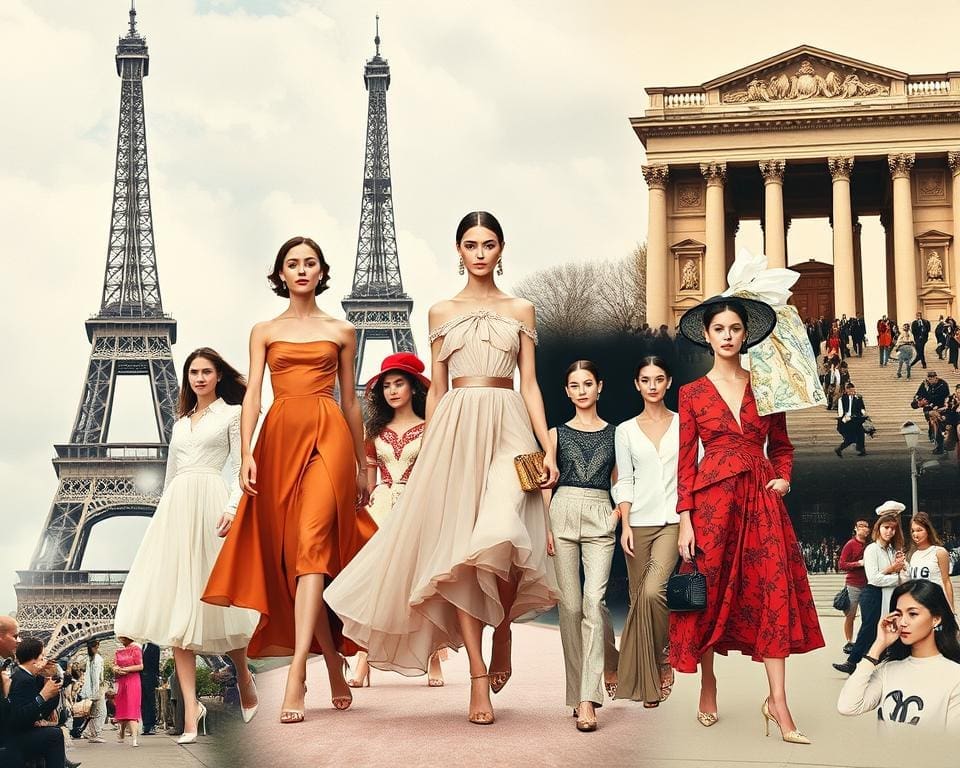Paris Fashion Week stands as a cornerstone in the global fashion industry, each year drawing attention from around the world. With its origins rooted in the mid-20th century, this prestigious event showcases the latest collections from renowned fashion houses, influencing trends and setting benchmarks throughout the industry.
The Paris Fashion Week history is rich, filled with milestones that reflect the evolution of style and design. Iconic brands such as Dior, Balenciaga, and Chanel have played pivotal roles, crafting a narrative that continues to inspire emerging talents. As the epicentre of haute couture, the show encapsulates not only fashion but also societal changes, making its influence felt far and wide.
Today, the influence of Paris Fashion Week remains as strong as ever, serving as a vital indicator of where the fashion industry is headed. With each season, we witness an inspiring blend of established designers and fresh innovators, all vying for a moment in the spotlight during this remarkable week.
Origins and Evolution of Paris Fashion Week
The story of Paris Fashion Week unfolds as a remarkable journey that highlights the evolution of style and creativity. This iconic event has transcended mere showcases of clothing, transforming into a celebration of culture and artistic expression. Understanding the key milestones, influential designers, and notable trends provides insight into the essential role Paris Fashion Week plays in the global fashion narrative.
Initial Establishment and Key Milestones
The formal inception of Paris Fashion Week can be traced back to the 1940s, a pivotal era that sought to elevate the visibility of French fashion. One of the major Paris Fashion Week milestones occurred in 1973, when the event took on its structured form, allowing major fashion houses to present their seasonal collections. This marked a significant shift in how fashion was showcased and consumed, elevating Paris to its revered position in the fashion world.
Influential Designers and Their Contributions
Transformational figures in fashion have often emerged from the Paris Fashion Week designers circuit. Christian Dior stands out prominently, particularly for introducing the revolutionary “New Look” in 1947. This design not only reshaped women’s silhouettes but also set a standard for future presentations at the event. Designers such as Yves Saint Laurent and Chanel have also played vital roles by pushing boundaries and influencing generations of fashion enthusiasts.
Notable Trends from Early Years
The evolution observed at Paris Fashion Week has reflected broader societal shifts through decades. Early trends established a foundation that paved the way for contemporary fashion movements. The minimalist aesthetic of the 1990s and the emergence of street style as a legitimate mode of expression demonstrated how Paris Fashion Week trends could capture the spirit of the times. These foundational elements continue to resonate, highlighting the dynamic nature of the event and its ongoing relevance.

The History and Influence of Paris Fashion Week
Paris Fashion Week holds a unique place in the world of fashion, echoing the cultural significance that extends far beyond its catwalks. It serves as a platform where creativity flourishes, unveiling trends that inspire and resonate globally.
Cultural Significance and Global Reach
The Paris Fashion Week significance lies in its ability to shape cultural narratives across various societies. Designers and brands like Chanel, Dior, and Louis Vuitton set the tone for style, influencing not just the fashion industry but also art, music, and lifestyle. This event attracts an international audience, eager to witness the latest innovations and artistic expressions that define the upcoming season.
Impact on Emerging Fashion Capitals
Emerging fashion capitals benefit greatly from the Paris Fashion Week impact. Countries and cities such as Tokyo, Seoul, and Buenos Aires are inspired by the innovative approaches showcased, promoting their local designers on a global stage. This event acts as a catalyst for talent from diverse backgrounds, enabling them to break into the international market and gain recognition.
Transformation Through the Decades
Throughout the decades, Paris Fashion Week has undergone significant transformation, embracing inclusivity and sustainability as core values. This shift reflects the changing attitudes of contemporary audiences, proving that the Paris Fashion Week cultural influence remains relevant in today’s world. By adapting to these evolving trends, the event ensures its continued importance in shaping not just the fashion landscape, but broader societal values.
Modern Impact and Future of Paris Fashion Week
In the contemporary landscape, the modern impact of Paris Fashion Week is undeniably profound, as the event continues to evolve in response to emerging trends. One significant advancement is the integration of digital innovations, which has allowed audiences worldwide to engage with the shows in real-time. This virtual accessibility expands the reach of the event, enabling a diverse audience to experience the creativity and craftsmanship that Paris is renowned for, thus enriching the overall fashion narrative.
Moreover, the increasing emphasis on sustainability is reshaping the dialogues surrounding Paris Fashion Week evolution today. Designers and brands are placing a heightened focus on ethical fashion practices, reflecting growing consumer demands for environmental responsibility. This shift not only influences the collections presented but also shapes consumers’ perceptions, urging them to consider the origins of their garments and the impact of their choices.
Looking ahead, the Paris Fashion Week future appears promising as it seeks to embrace both tradition and innovation. The intricate balance between showcasing time-honoured craftsmanship and cutting-edge designs ensures that Paris remains a vital force in influencing the global fashion landscape. As the event navigates through its modern challenges, its legacy as a trendsetter and a beacon for creativity will undoubtedly endure, inspiring both established designers and emerging talents alike.








